#Black Maternal Health Caucus
Text
Texas health officials have missed a key window to complete the state's first major updated count of pregnancy related deaths in nearly a decade, saying the findings will now be released next summer, most likely after the Legislature's biennial session.
The delay, disclosed earlier this month by the Department of State Health Services, means lawmakers won't likely be able to use the analysis, covering deaths from 2019, until the 2025 legislative cycle. The most recent state-level data available is nine years old.
In a hearing this month with the state’s Maternal Mortality and Morbidity Review Committee, DSHS commissioner Dr. John Hellerstedt said the agency wanted to better align its methodology with that of other states, and that there hadn’t been enough staff and money to finish the review for a scheduled Sept. 1 release.
“The information we provide is not easily understood, and not easily and readily comparable to what goes on in other states,” Hellerstedt told the committee. “And the fact it isn’t easily understood or easily comparable in my mind leaves room for a great deal of misunderstanding about what the data really means.”
In a statement, DSHS spokesman Chris Van Deusen said the agency is reviewing its “internal processes” to try to develop more timely data.
“I expect we’ll be having conversations with legislators about what could be done to speed up the lengthy review process,” he said.
The setback comes four months before the start of the legislative session and two months before the midterm election, which has been dominated in part by the state’s new Republican-led abortion ban. Those restrictions have placed more scrutiny on the state’s maternal mortality rate, which is among the 10 highest in the country, according to national estimates that track pregnancy-related complications while pregnant or within a year of giving birth.
“There are a lot of us that want to know whether or not pregnancy in Texas is a death sentence,” said state Rep. Ann Johnson, a Houston Democrat and member of the Texas Women’s Health Caucus. “If we’ve got a higher rate of maternal mortality, we sure want to figure it out. You can’t figure it out if somebody’s sitting on the numbers, and that’s my worry.”
Like in other states, maternal outcomes in Texas are worse for Black women, who have died at about three times the rate of non-black women. This year’s findings were expected to drill further into the causes behind those disparities.
Rep. Shawn Thierry, a Houston Democrat who has described going through her own dangerous birthing experience, said the data is critical for understanding the role cesarean sections play in maternal deaths and whether implicit bias is playing a factor in the quality of maternal care for Black women.
“There is so much to unpack from the data,” Thierry said, adding that “no woman who chooses life should have to do so in exchange for their own.”
Members of the state’s maternal mortality committee, which compiles the official report, said they were disappointed by the decision to hold the preliminary findings.
“(We) do the work to honor the lives of women who lost their lives, and families that are forever impacted by the loss of a mother,” said Dr. Carla Ortique, the committee chair. “So there’s disappointment on both fronts: that we’re not honoring those women and families, and that we may be negatively impacting efforts to improve maternal health outcomes in our state.”
Ortique said the state has already identified 149 potential maternal deaths in 2019, of which 118 have been analyzed by the committee to see if they were pregnancy-related. Six newly identified deaths may be added to that group, she said. The numbers cover deaths during the pregnancy through one year after giving birth.
The state has published a maternal death report every other year since 2014, often based on preliminary data updated later. For example, the maternal death report in 2018 identified 29 deaths in 2012 that were not included in the previous report. The committee also released updating findings from its most recent report, studying deaths from 2013, at the Sept. 2 meeting.
Out of 175 potential maternal deaths in 2013, 70 have since been determined to be pregnancy-related.
The state has been collecting the updated numbers as part of the requirements of a new CDC grant, awarded to the DSHS in 2019. The balance, according to advocates, is in making sure data is as accurate as possible, but also released quickly enough to be of use to researchers and policymakers.
The reports usually come with wide-ranging recommendations to improve maternal health in the state, including expanding Medicaid to one year postpartum, proactively treating chronic conditions and addressing the disproportionately high number of maternal deaths among Black women.
Texas has extended Medicaid coverage for pregnant women until six months after they give birth or miscarry, but the state has declined to expand coverage to the recommended 12 months.
The unexpected delay has frustrated advocates, who are gearing up to push Republicans in the Senate and the Governor to back the full 12-month extension, as many other states have done.
“State leaders will be able to make better policy decisions for Texas moms if they have more recent data on maternal deaths as well as health challenges like infections or postpartum depression that new moms are facing in Texas,” said Diana Forrester, director of health care policy at Texans Care for Children.
Republican leaders, including Gov. Greg Abbott, who is running for re-election, have celebrated the overturning of federal abortion protections this summer by the U.S. Supreme Court.
Many have committed to boosting resources for pregnant women and new mothers. A spokesman for Abbott did not respond to a request for comment. Republican House Speaker Dade Phelan, who supports the 12-month extension, was critical of the delay, saying it “comes at a time when Texas must support moms and families.”
“Our work will start with passing legislation that further extends postpartum health coverage for new Texas mothers to a full year, which our chamber approved overwhelmingly in 2021 and I expect will do so again next year,” Phelan said in a statement.
In addition to providing updated recommendations for lawmakers, the report also helps nonprofits compete for grants that support new or expectant mothers, said Nakeenya Wilson, an Austin-based maternal health advocate and member of the state’s maternal mortality committee.
Her group, the Maternal Health Equity Collaborative, used data from past reports to earn a $1 million grant that provides childcare for new mothers in Central Texas.
“If they don’t have the most up-to-date information, then we run the risk of disenfranchising some of the most vulnerable in our state,” she said.
Johnson said the delay was “unacceptable” given the high rate of maternal mortalities.
“It is a crisis that we claim on bipartisan grounds to want to investigate,” Johnson said. “And yet here we are told at the last minute on the date that the report was supposed to be due, ‘Sorry, we couldn’t get around to it.’”
#us politics#news#houston chronicle#2022#texas#maternal death data#maternal mortality#maternal death#abortions#abortion bans#Department of State Health Services#Maternal Mortality and Morbidity Review Committee#Dr. John Hellerstedt#Chris Van Deusen#Rep. Ann Johnson#Texas Women’s Health Caucus#Rep. Shawn Thierry#Dr. Carla Ortique#center for disease control and prevention#medicaid#Diana Forrester#Texans Care for Children#gov. greg abbott#rep. Dade Phelan#Maternal Health Equity Collaborative#Nakeenya Wilson#2022 midterms#2022 elections
31 notes
·
View notes
Text
Pa. Black Maternal Health Caucus caps off Black Maternal Health Week - WHYY
suburbs to South Jersey and Delaware, what would you like WHYY News to cover? Let us know! Black women remain at a high risk of maternal mortality …
View On WordPress
0 notes
Link
#988#Anxiety#Black#BlackAmericans#BlackCommunities#BlackCommunity#BlackFamilies#BlackMentalHealthAlliance#Blacks#BlackYouth#CDC#CelebratingYourGiftofLife#CentersforDiseaseControlandPrevention#CrisisTextLine#Depression#JamesDonaldson#JamesDonaldsonnotes:Welcometothe“nextchapter”ofmylife…beingavoiceandanadvocateformentalhealthawarenessandsuicideprevention#JamesDonaldsonMentalHealth#JamesDonaldsononMentalHealth#MentalChallenges#MentalHealth#MentalHealthProfessionals#MentalHealthStigma#MentalIllness#MentalIssues#NationalSuicidePreventionLifeline#Stigma#Suicide#YourGiftofLife#YourGiftofLife.org
0 notes
Text
Disparities in Maternal Mortality? 'We Know Exactly What to Do,' Says Lawmaker#Disparities #Maternal #Mortality #Lawmaker
The head of the Centers for Medicare & Medicaid Services (CMS) and co-chair of the House’s Black Maternal Health Caucus shared strategies for addressing disparities in maternal health during a panel discussion at HHS’s Black Health Summit on Wednesday afternoon.
No matter their income or education level, Black women are three times more likely than white women to die from pregnancy-related…

View On WordPress
0 notes
Text
Cannabis, education top priorities for Md.’s Legislative Black Caucus
Establishing a criminal justice policy that prevents police officers from stopping black drivers and searching vehicles just because they smell cannabis, thc Big Chief Carts , and recruiting more people of African Americans to teach in public schools are two of twelve priorities the Legislative Black Caucus of Maryland served out on Wednesday.
Del. Jheanelle Wilkins (D-Montgomery) said that caucus members lead on a range of issues and in “key roles to keep the House and the Senate moving as we do the people’s work. We’re excited to deliver on our strength in our leadership this 2023 session and beyond.” she said.
The caucus laid policy priorities into five areas: cannabis legalization, education equity, wealth and Black businesses, health, and housing.
In drafting legislation defining the cannabis industry, the caucus wants to ensure that African Americans who are minorities be included in growing, processing, and dispensing cannabis including thc Buddha Bear Carts .
A framework for weed licensing, regulation, and taxation must be enacted before recreational use can become legal on July 1.
A consulting firm has estimated that revenue from dispensaries in Maryland could reach about $1 billion after the industry gets underway within two years.
Sen. Jill Carter (D-Baltimore City) is sponsoring legislation to make certain criminal offenses involving cannabis civil offenses instead, punishable by civil penalties.
For instance, the court would be able to order a person younger than age 21 who is found guilty of possession of cannabis or Buddies carts to attend a drug education program approved by the state Department of Health. The Senate Judicial Proceedings Committee plans to hold a hearing on that bill on Feb. 1.
That same committee is scheduled to hold a hearing on Feb. 2 to review a bill Carter is sponsoring that would prevent law enforcement officers from stopping a motorist solely based on an odor of cannabis without any evidence of intoxication or other valid cause.
“Courts have been divided about odor searches. But now, as marijuana products such as Chronic Carts will be legal, it would be an illegal activity for law enforcement officers to continue to use it as a pretext — the odor of marijuana,” Carter said. “What we’ll have is partial legalization and Black people will be vulnerable to existing arrest patterns where they will continue to be disproportionately targeted by law enforcement and saddled with criminal records as a result of marijuana legalization.”
Also, To combat bias searches of blacks that have led to undervaluing homes, businesses, and other real property that is owned by people of color or is in minority neighborhoods, legislation is being worked on to encourage, and educate, more Marylanders to become appraisers through a program called PAREA, said Del. Marvin Holmes Jr. (D-Prince George’s).
Similar legislation has been authorized in other states, including Iowa and New Jersey; lawmakers are reviewing legislation requiring appraisers to complete anti-bias training.
Other proposals backed by the caucus, including some in draft form and some yet to be filed, are:
Doubling funds for the state’s Student Loan Tax Credit program — to be sponsored by Del. Karen Toles (D-Prince George’s).
Establishing the Small Business Protection Act to ensure minority-owned businesses are involved in the procurement process for state contracts — to be sponsored by Del. Nick Charles (D-Prince George’s) and Sen. Antonio Hayes (D-Baltimore City)
Creating a Commission on Public Health to focus on equity, the state’s response to COVID-19, racial and ethnic disparities in maternal mortality and birth outcomes, and other health measures — a bill sponsored by Del. Arianna Kelly (D-Montgomery County).
Establishing a statewide housing voucher program with an upfront investment of $15 million.
The 64 legislators in the caucus, which Wilkins said is the most significant Black caucus in the nation, are a powerful voting bloc and include four prominent leaders from both chambers: House Speaker Adrienne Jones (D-Baltimore County), Speaker Pro Tem Sheree Sample Hughes (D-Lower Shore), House Majority Whip Jazz Lewis (D-Prince George’s) and Senate President Pro Tem Malcolm Augustine (D-Prince George’s).
“Our strength is not just in our numbers. It’s in our leadership,” Wilkins said. “The Legislative Black Caucus of Maryland stands together…ensuring that every single one of these priorities are passed this legislative session.”
0 notes
Text
Rep. Ilhan Omar is a Congresswoman from the 5th District of Minnesota and has emerged as a strong voice against systemic injustice in the United States. Elected for the first time in 2018, Ilhan Omar has challenged the status quo of United States politics and the notions of xenophobia, racism, imperialism, and militarism.
She faced controversies and personal attacks spread by former President Donald Trump about her associations. Yet, she never gave up on her struggle to influence the foreign and domestic policies of the United States.
She not only speaks for her constituency but also about the future of the country, a future where social justice, economic stability, and equality will be ensured by the government. She is the nightmare of conservatives and an advocate of progressives.
We have answered some important questions regarding the House systemic changer Ilhan Omar, considering the idea that she is working to bring a radical change in the United States. Let’s have a look.
Who is Rep. Ilhan Omar?
Ilhan Omar is known as a left-leaning, progressive, and fresh Congresswoman who has emerged as a strong advocate against the oppression of African Americans after the brutal killing of George Floyd. She is a Democrat and represents the 5th district of Minnesota.
Where is Ilhan Omar from originally?
Omar came to the United States as a teenager in 1995 from Somalia, and within a short time, made her name known in the political circles of the United States.
How did Ilhan Omar develop her interest in US politics?
Her interest in politics started in 1997 while interpreting for her grandfather in Democratic Party caucuses.She graduated from North Dakota State University with a degree in political science and International Relations in 2011 and started her political career with a “Vote No Twice” campaign against voter suppression.She also worked as a Senior Policy Aide for Minneapolis City Council Member Andrew Johnson. Her first breakthrough was being elected to the MN House of Representatives in 2016.
Why is Ilhan Omar different from other minorities?
Rep. Ilhan Omar is the first Somali-American and first naturalized citizen from Africa to become a member of the House of Representatives. She is the first Black woman to be elected from Minnesota and among the first two Muslim women to become a Congresswoman.
Did Ilhan Omar really bring some change in the United States, or is she just another Congresswoman?
Unlike other lawmakers, Ilhan Omar was very active during her day-to-day affairs. While serving as the Minnesota Representative, Rep Ilhan Omar delivered resources directly into the hands of Minnesota and brought $450,000 to her constituency in the form of casework and secure COVID-19 critical funding. During her first term as Congresswoman, Ilhan Omar introduced 35 bills and passed 14 amendments to the bills. Her MEALS ACT and PAUL ACT have become law now.
She is basically considered a progressive. Did she really work on humanitarian grounds?
During her time in Congress, Ilhan also co-founded the Black Maternal Health Caucus. Similarly, she also worked on the emergency task force on black youth suicide and mental health.She was elected as the Vice-Chair of the Medicare for All caucus and led reforms regarding prescription drugs. She also helped in passing the bill that limited the role of the United States in the Yemen War.
Does Omar want to dismantle the whole system?
Rep. Ilhan Omar called for dismantling the system after the death of George Floyd. She observed the systematic racism present in America against Black Americans. As a police officer killed George Flloyd, Ilhan declared that “We are not merely fighting to tear down the system of oppression in the criminal justice system. We are fighting to tear down the system of oppression that exists in housing, in education, in healthcare, in employment, and in the air, we breathe.”(Ilhan Omar)
Why does Ilhan Omar often become a part of controversies?
Being a progressive and Black Congresswoman, it is very common for Omar to come into the spotlight.She challenged stereotypes and the status quo, which is one of the primary reasons why she always sparks controversies. Speaking against racial injustice pushed her into controversies that were mostly originated by former president Donald Trump.
Donald Trump said that Ilhan Omar married her brother and entered the US illegally. Is it true?
Ilhan Omar also falls into another controversy of marrying her brother to enter him into the US illegally. However, neither Donald Trump nor any other accuser came up with the documentary proof which shows that Ahmed Nur Said Elmi, Ilhan Omar’s ex-husband, was her brother. Similarly, she legally entered the US; otherwise, it would not be possible for her to participate in the elections.
Why do Republicans hate Omar?
Republicans as a whole were inspired by Donald Trump’s ideology, and the same was the case in hating Omar. Republicans have been very active in promoting white supremacy in the United States lately, and this is one of the reasons why they do not want to see the immigrants in the legislative branch of the US government.
Video Summary
https://www.youtube.com/watch?v=ZLusOZd-TCQ
0 notes
Text
2021 Black Maternal Health Legislation Updated With Covid-19, Climate Change Bills #Momnibus
2021 Black Maternal Health Legislation Updated With Covid-19, Climate Change Bills #Momnibus
In 2020, Rep. Lauren Underwood (D-IL) and Rep. Alma Adams (D-NC) along with then California senator Kamala Harris introduced the Black Maternal Health Momnibus, a series of nine bills that took racial disparities out of the maternal health outcomes, funded communty-based maternal health organizations, improved data collection, and invested in digital health tools among other pertinent issues.…

View On WordPress
#black maternal health#Black Maternal Health Caucus#Black Maternal Health Momnibus#Maternal death#maternal health care
0 notes
Text
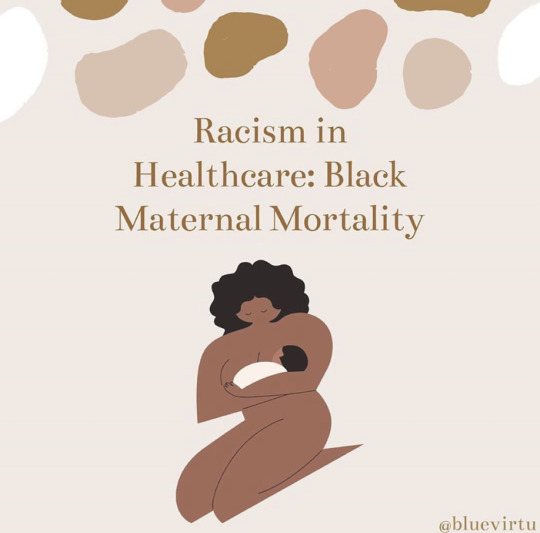
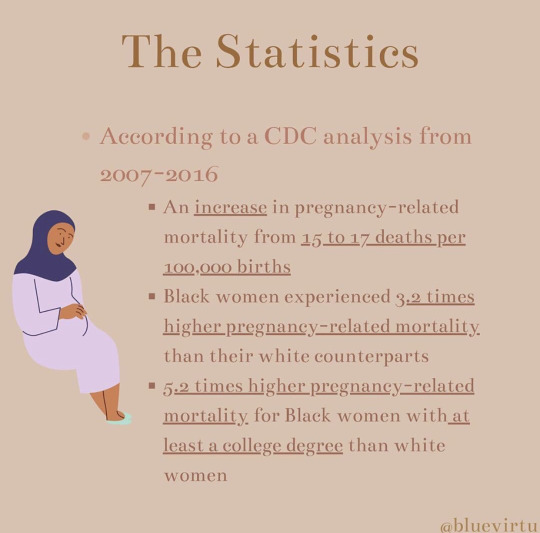
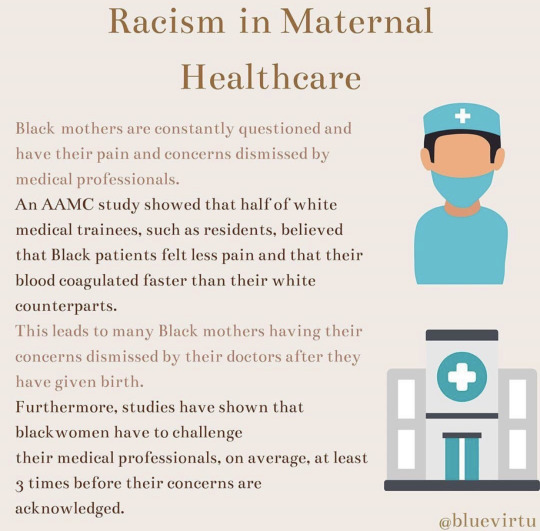


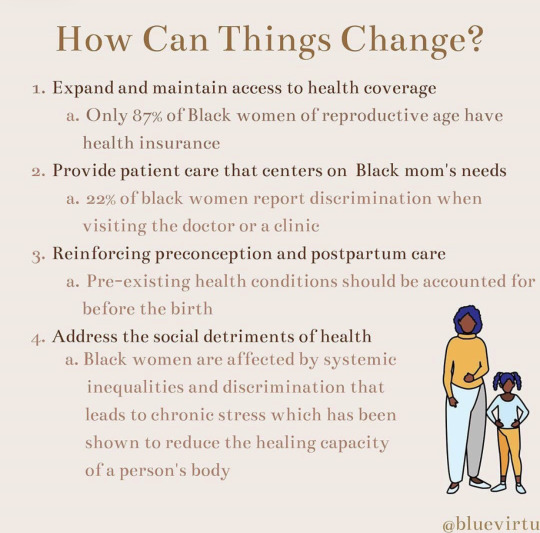
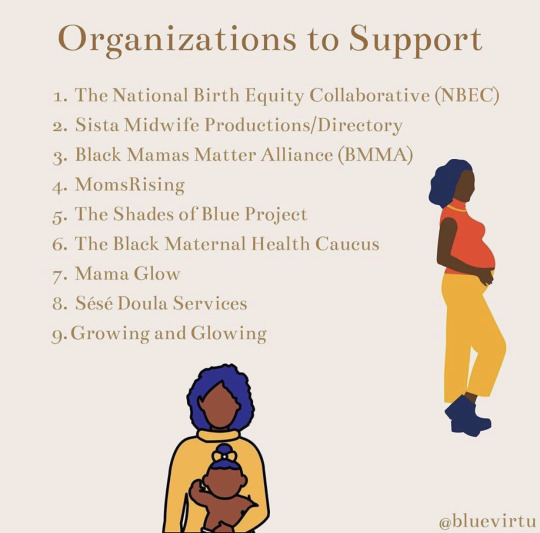
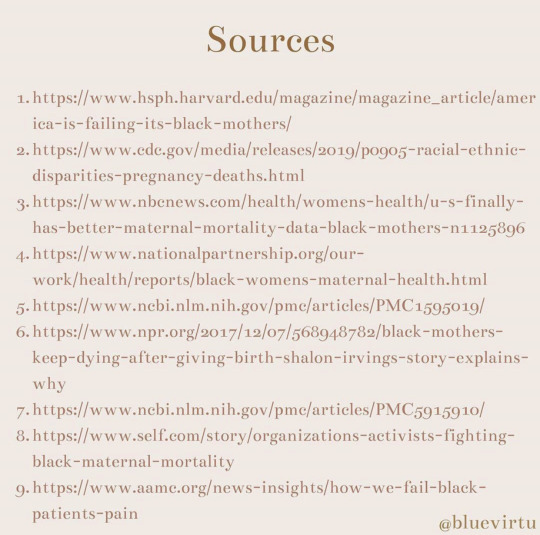
Racism pervades all aspects in our lives, even when we are doing something as natural and human and universal as giving birth or being born.
Stay safe and educate! ✊🏽
Follow @bfpnola for more and check our bio for over 200 free social justice and mental health resources!
-------------------------------------------------
[transcription, thank you to @nynaeve-almeara for writing this! (it won’t let me tag you, so I’ll just link your profile)
Racism in Healthcare: Black Maternal Mortality
The Statistics: According to a CDC analysis from 2007-2016
An increase in pregnancy-related mortality from 15 to 17 deaths per 100,000 births
Black women experienced 3.2 times higher pregnancy-related mortality than their white counterparts
5.2 times higher pregnancy-related mortality for Black women with at least a college degree than white women
Racism in Maternal Healthcare: Black mothers are constantly questioned and have their pain and concerns dismissed by medical professionals. An AAMC study showed that half of white medical trainees, such as residents, believed that Black patients felt less pain and that their blood coagulated faster than their white counterparts. This leads to many Black mothers having their concerns dismissed by their doctors after they have given birth. Furthermore, studies have shown that black women have to challenge their medical professionals, on average, at least 3 times before their concerns are acknowledged.
One Mother's Story
Serena Williams has won 23 Grand Slam Titles and is a world renowned tennis player
In September 2017, after giving birth to her daughter Olympia she lost her breath and recognized that something was severely wrong
She left her room and gasped to her nurse that she was afraid that she had developed a blood clot
She requested a CT scan and heparin (a blood thinner)
However, her concerns were dismissed and instead an ultrasound was run for her normal swollen legs
Only after she pleaded again was she sent to have a CT where several life-threatening blood clots were discovered in her lungs
Afterwards, she was given the heparin which saved her life, she knew her own body best but was instead ignored and questioned
However, many black mothers are not as lucky
Pregnancy-related deaths by race in the U.S., 2007 to 2016 (Number of deaths is per 100,000 live births).
Black: 42.8
American Indian / Alaska Native: 32.5
Asian / Pacific Islander: 14.2
White: 13
Hispanic: 11.4
Source: Centers for Disease Control and Prevention
Graphic: Robin Muccari / NBC News
How Can Things Change?
Expand and maintain access to health coverage. Only 87% of Black women of reproductive age have health insurance
Provide patient care that centers on Black mom's needs. 22% of black women report discrimination when visiting the doctor or a clinic
Reinforcing preconception and postpartum care. Pre-existing health conditions should be accounted for before the birth
Address the social detriments of health. Black women are affected by systemic inequalities and discrimination that leads to chronic stress which has been shown to reduce the healing capacity of a person's body
Organizations to Support:
The National Birth Equity Collaborative (NBEC)
Sista Midwife Productions/Directory
Black Mamas Matter Alliance (BMMA)
MomsRising
The Shades of Blue Project
The Black Maternal Health Caucus
Mama Glow
Sésé Doula Services
Growing and Glowing
Sources:
https://www.hsph.harvard.edu/magazine/magazine_article/america-is-failing-its-black-mothers/
https://www.cdc.gov/media/releases/2019/p0905-racial-ethnic-disparities-pregnancy-deaths.html
https://www.nbcnews.com/health/womens-health/u-s-finally-has-better-maternal-mortality-data-black-mothers-n1125896
https://www.nationalpartnership.org/our-work/health/reports/black-womens-maternal-health.html
https://www.ncbi.nlm.nih.gov/pmc/articles/PMC1595019/
https://www.npr.org/2017/12/07/568948782/black-mothers-keep-dying-after-giving-birth-shalon-irvings-story-explains-why
https://www.ncbi.nlm.nih.gov/pmc/articles/PMC5915910/
https://www.self.com/story/organizations-activists-fighting-black-maternal-mortality
https://www.aamc.org/news-insights/how-we-fail-black-patients-pain ]
#black liberation#no justice no peace#activism#protest#equality#poc#gen z#millenials#black lives matter#black women#black womxn#black moms#black mothers#pregnancy#pregnant#black babies#family#doctor#hospital#maternal mortality#good trouble#education#black tumblr#black girl magic#black business#id#health#climate change#bipoc
8K notes
·
View notes
Text


Fannie Lou Hamer (1917-1977)
Co-founder of the Freedom Democratic Party and the National Women’s Political Caucus; helped organize Mississippi’s Freedom Summer; suffered arrests and violence as a result of her activism for civil rights.
Also: fought for employment opportunities for single black mothers, campaigned for maternal and child health programs, and supported her own adopted daughter when she became pregnant outside of marriage.
“[Hamer] was a delegate to the White House Conference on Food and Nutrition…. There she spoke out strongly of abortion as a means of genocide of blacks….” - Ethel Payne
“Mrs. Fannie Lou Hamer, a militant black leader from Mississippi and one of the handful of bona-fide poor invited to the conference, denounced voluntary abortion as ‘legalized murder’ and made it clear that she regards it as part of a comprehensive white man’s plot to exterminate the black population of the Untied States.” - William Hines
62 notes
·
View notes
Text
Too many Black moms are dying in Ohio. State lawmakers want to change that | WVXU
America is a toxic environment and the high rate of maternal & infant mortality is proof.
6 notes
·
View notes
Text
Members of the Congressional Black Caucus (CBC) are urging President Biden to declare a national emergency in response to the Supreme Court’s decision striking down the Roe v. Wade ruling on abortion rights.
In a letter to Biden, the CBC members said he should use “every tool” at his disposal to protect access to abortion services.
The letter also reminded Biden that some states — including Louisiana, South Dakota, Kentucky and Missouri — have “trigger” laws that will essentially ban abortion immediately.
“Every day we wait to respond is a day wasted in mitigating the public health crisis that Roe’s dismantling will catalyze,” the lawmakers wrote in the letter.
They also said the Court’s decision will disproportionately affect Black women living in the South at a time when the maternal health crisis is already severely affecting the Black community. The Biden administration released a plan to tackle the maternal health care crisis Friday, promising to focus on building equity within the system.
“These unprecedented and calculated attacks on our bodily autonomy are a direct affront to the lives and freedom of Black women,” the caucus’s letter said.
Members of the Caucus have also released individual statements denouncing the conservative Court’s 6-3 decision.
Rep. Joyce Beatty (D-N.Y.), the chairwoman of the CBC, released a statement saying, “The hands of time have once again been turned back.”
“Let me be very clear: government-mandated pregnancy is not pro-life, it is pro-policing of women’s bodies,” she said.
Meanwhile, Rep. Val Demings (D), who is running for the Senate in Florida, said she was “ready to fight” for reproductive freedom.
In September, Demings introduced the Women’s Health Protection Act, which would codify the right to access abortion across the nation. It was blocked in the Senate.
“Freedom means the ability to live your life as you choose,” said Demings. “You have a fundamental, God-given right to your own life, your family, your religion, your circumstances, your privacy, your values, your health, your body. I’m going to fight for that freedom and so will millions of others. This isn’t over.”
#us politics#news#the hill#abortions#abortion bans#2022#us supreme court#scotus#Congressional Black Caucus#roe v. wade#president joe biden#biden administration#Rep. Joyce Beatty#Rep. Val Demings#Women’s Health Protection Act
33 notes
·
View notes
Text
James Donaldson on Mental Health - Time for serious discussion about suicide and depression in the Black community
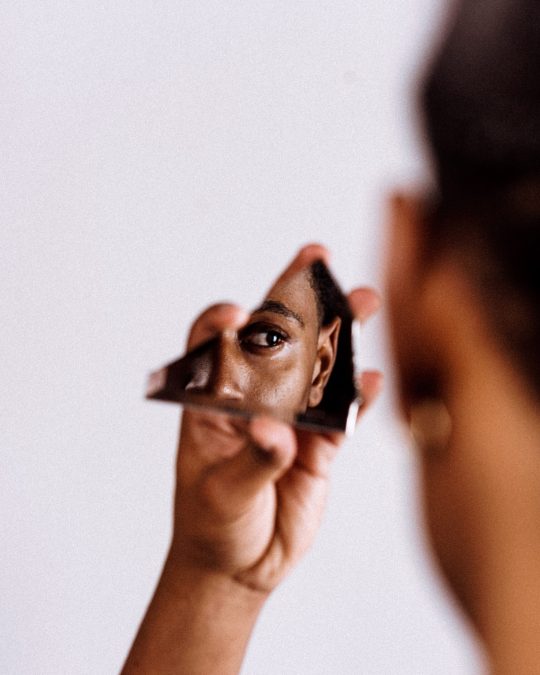
By L.A. PARKER | [email protected] | The Trentonian
A ride into Trenton via U.S. Route 1 South delivers a compelling in-your-face billboard message on the north side of the highway.
Just about a quarter-mile from the Perry St. exit the large post shows a Black male on the phone, suggesting a call being made to 988 — a suicide and crisis lifeline. Contrary to self-inflicted allegations, Black people can benefit from emotional support, therapy and psychological intervention.
Mental illness and suicide present new challenges for Black community members, after shockwaves of a COVID-19 pandemic ravaged our lives disproportionately. Death and illness created new detriments that conjoined worn narratives of disparities in health care. Not surprisingly, Black youth and young adults face a rising tide of issues that place them at the epicenter of emotional turmoil.
According to data from the Centers for Disease Control and Prevention (CDC), the suicide rate among Black people between the ages of 10 to 24 rose by 36.6% between 2018 to 2021. Researchers have also observed that Black youth between 5 to 12 years old are twice as likely to die by suicide than their white peers.
An August 2023 report from the Johns Hopkins Center for Gun Violence Solutions, entitled, “Still Ringing the Alarm: An Enduring Call to Action for Black Youth Suicide Prevention,” highlights research and data and proposes meaningful recommendations to prevent Black youth suicide.
The title suggests inactivity on this crucial matter, particularly on behalf of Black LGBTQ youth who face disproportionate risk for suicide. Access to guns heightens suicide risk and potential for deadly outcomes. But then again, bells toll still for deadly disparities of breast cancer deaths between Black women and their White sisters; and the sirens sound for maternal inequities and dangers of childbirth for Black women; and alarms blare for gun violence that crackles and pops in Black neighborhoods.
Firearms are the most common method of suicide among Black boys ages 0-19, according to data from the Centers for Disease Control and Prevention (CDC). High levels of community violence and police violence involving firearms result in racial trauma, serving as risk factors for suicide, according to the CDC. Prior to the Johns Hopkins findings, others had pursued information on this Black youth suicide issue.
#James Donaldson notes:Welcome to the “next chapter” of my life… being a voice and an advocate for #mentalhealthawarenessandsuicideprevention, especially pertaining to our younger generation of students and student-athletes.Getting men to speak up and reach out for help and assistance is one of my passions. Us men need to not suffer in silence or drown our sorrows in alcohol, hang out at bars and strip joints, or get involved with drug use.Having gone through a recent bout of #depression and #suicidalthoughts myself, I realize now, that I can make a huge difference in the lives of so many by sharing my story, and by sharing various resources I come across as I work in this space. #http://bit.ly/JamesMentalHealthArticleFind out more about the work I do on my 501c3 non-profit foundationwebsite www.yourgiftoflife.org Order your copy of James Donaldson's latest book,#CelebratingYourGiftofLife: From The Verge of Suicide to a Life of Purpose and Joy
Link for 40 Habits Signupbit.ly/40HabitsofMentalHealth
www.celebratingyourgiftoflife.com
On April 30, 2019, U.S. Representative Bonnie Watson Coleman established he Congressional Black Caucus (CBC) Emergency Taskforce on Black Youth Suicide and Mental Health, simultaneously empowering a working group, composed of the country’s leading Black academic, advocacy and practicing experts. For eight months, the task force and working group held hearings, forums, events and listening sessions to identify both the causes and potential solutions to this burgeoning crisis. On December 17, the task force released a report, and simultaneously introduced legislation aimed at closing the mental health care gap for black youth.
Still, if the Watson-Coleman influenced task force assembled four years ago and the Johns Hopkins report noted worsening conditions regarding Black youth suicide then we need to reconsider initiatives formed to combat these deaths.
Adequate funding almost always registers as a concern while education of parents, teachers, guidance counselors and other professionals appears necessary for recognition of signs and symptoms that may occur prior to suicide attempts. Plus, the effort to positively impact this issue demands a focus and Rev. Dr. Martin Luther King’s fierce urgency of now.
It’s time for open conversations about suicide in the Black community. Stop the stigma and let’s talk honestly about this worsening problem.
Of course, discussions on suicide across all demographics must continue. While sounding the alarm matters, this crisis demands meaningful action.
If you are in crisis or know someone who is, please call or share the National Suicide Prevention Lifeline at 988 or contact the Crisis Text Line by texting TALK to 988.
Read the full article
0 notes
Photo
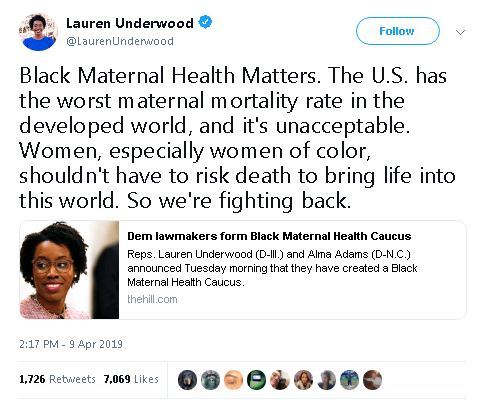
Awesome. It’s been time for this topic to be taken seriously.
https://thehill.com/homenews/house/438004-dem-reps-form-black-maternal-health-caucus
289 notes
·
View notes
Photo

Born in Somalia, Ilhan and her family fled the country's civil war when she was eight-years-old. They lived in a refugee camp in Kenya for four years before coming to the United States, eventually settling in the Cedar-Riverside neighborhood of Minneapolis in 1997. Ilhan’s interest in politics began at the age of 14 when she was as an interpreter for her grandfather at local DFL caucuses. Watching neighbors come together to advocate for change at the grassroots level made Ilhan fall in love with the democratic process. As a student at Edison High School in Minneapolis, she became an organizer and has been a coalition builder ever since. She worked as a community educator at the University of Minnesota and has been a devoted progressive activist in the DFL party for many years. Before running for office, Ilhan was a Humphrey Policy Fellow and served as a senior Policy Aide for a Minneapolis City Council Member. Through advocacy work with which she’s been involved, she’s advanced important issues, including support for working families, educational access, environmental protection, and racial equity. In 2016, Ilhan became the first Somali-American, Muslim legislator in the United States. With the help of her committed campaign team, they increased voter turnout by 37%. She was elected to the Minnesota House of Representatives in District 60B, where she’s lived for the past 20 years and where she and her husband Ahmed are raising their three children. In 2018, Ilhan was elected to the Congress representing the Fifth Congressional District of Minnesota. Upon her first three months in office, Ilhan introduced the No Ban Act, combating Donald Trump’s xenophobic Muslim Ban, she also co-sponsored the Yemen War Powers Resolution that would end U.S. involvement in the war in Yemen, she pushed to extend DED status for the Liberian community in Minnesota, joined the Black Maternal Health Caucus as a founding member and she has consistently worked to show that the American Dream is for everyone. source:ilhanomar (at Ilhan Omar) https://www.instagram.com/p/B6lDoVqF5uQ/?igshid=1pta2jhu281eb
4 notes
·
View notes
Text
#beautyintheblackness#ethnic beauty#women of color#black women#black beauty#shades of beauty#natural beauty#shades of color#blackisbeautiful#beautiful black women#maternal health#black mothers#black girls#birth fatality
16 notes
·
View notes
Text
Black Maternal Health Care Issues Topic of Hoyer Roundtable
Black Maternal Health Care Issues Topic of Hoyer Roundtable
Congressman Hoyer Facebook photo
At a roundtable discussion on the importance of improving maternal health care for African-American mothers and their children, Congressman Steny H. Hoyer heard from stakeholders from throughout the Fifth District about disparities in maternal health care and how communities can work together to improve outcomes.
The event was held earlier this month at the…
View On WordPress
#Alma Adams#Black Maternal Health Caucus#Congressman Hoyer#Congressman Steny H. Hoyer#Lauren Underwood#Steny Hoyer
0 notes